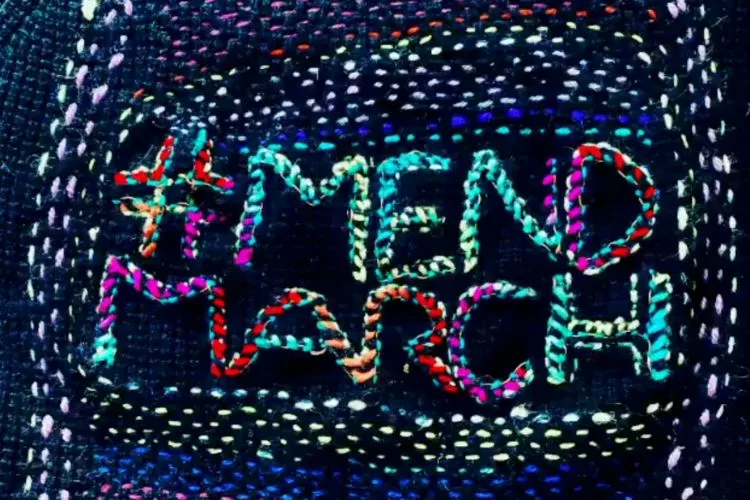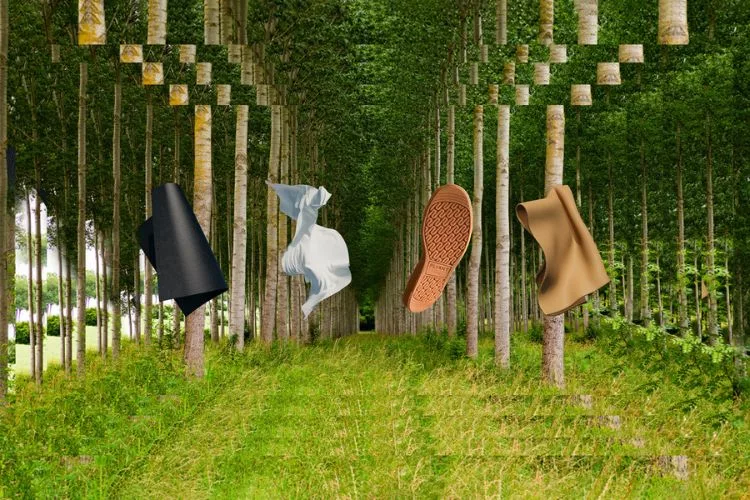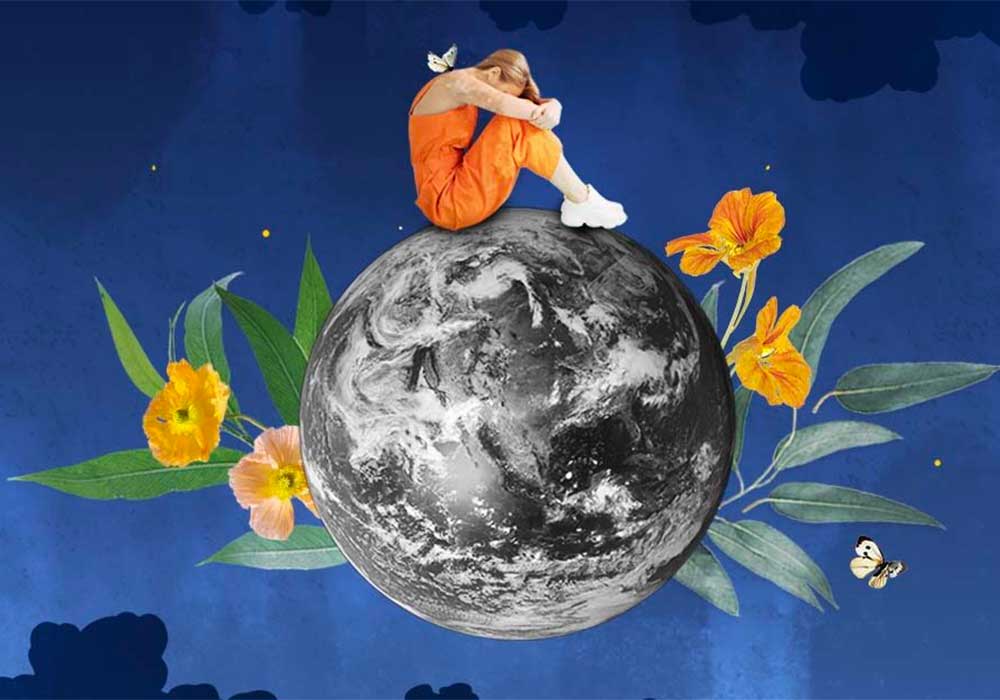
What comes to mind when you think of ‘grief’?
For myself, grief characterizes itself as a dark cloud that envelopes the mind, soul and heart during an intractable loss. There are often stages, popularized by the leading 5: denial, anger, bargaining, depression, and acceptance. Grief’s dark cloud typically rolls in for a loss of a loved one or a difficult life change.
But, can one grieve for the changing environment?
What Exactly Is Environmental Grief?
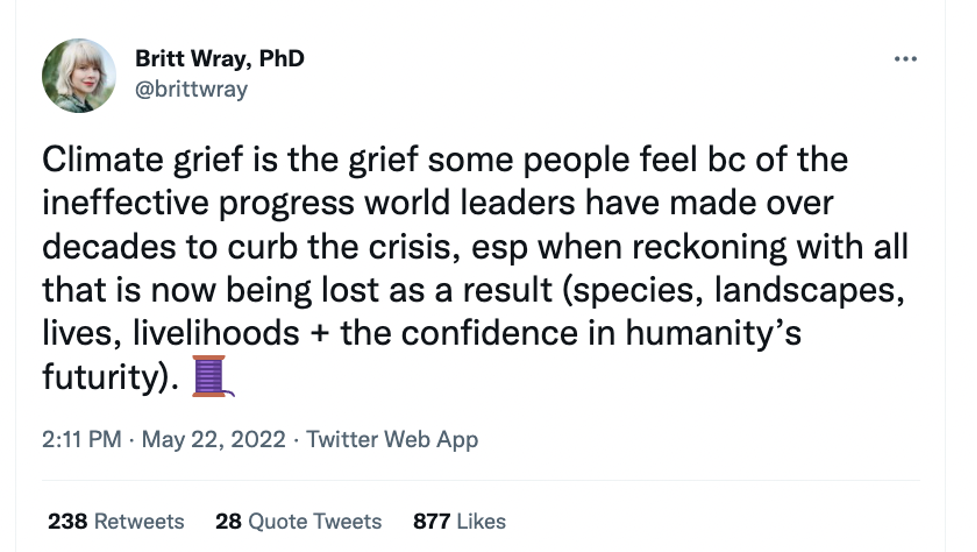
I think we can all agree: we are living through an extraordinary era of climate change, biodiversity loss, and ecological destruction. I will spare you a disparaging list of recent environmental losses.
These overwhelming changes have only recently entered the mental health arena. Mental health professionals now acknowledge that folks and communities are feeling the reverbs. These present as indirect and direct mental health issues such as depression, suicidal ideation, post-traumatic stress, anger, hopelessness, distress, and despair. Researchers have dubbed this ‘eco-anxiety’ and everyone, regardless of age, gender, or background is vulnerable to it. That being said, young people, womxn, indigenous groups, socio-economically disadvantaged communities and individuals who are significantly linked to the environment, are at an increased risk.
Contemporary still is ‘environmental grief’ coined by Thanatologist Kriss Kevorkian. Environmental grief is incredibly individualistic and will vary based on geographical or cultural reasons. For example, Indigenous Peoples and/or farmers are likely to connect to the land differently than others.
Still, no matter what demographic you identify with, environmental grief is deeply personal and can be very disorienting. And it’s a tough one – because while “traditional” grief is socially accepted, feelings about the environment are not quite there yet. For example, a Yale survey tells us that 65 percent of people polled discuss global warming “never” or “rarely.”
The Hidden Power Of Environmental Grief
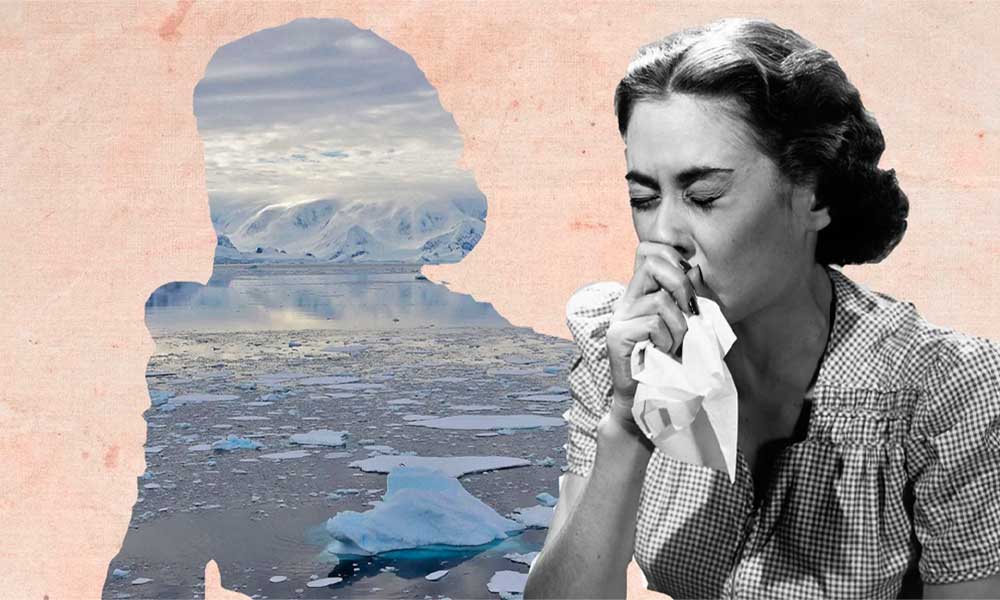
Folks who do experience environmental grief and/or eco-anxiety are all too familiar with the crushing feeling of hopelessness. Researchers, however, ask you to reframe this, as they regard ecological grief as a completely natural, albeit overlooked, response. “I don’t see [environmental] grief as a disorder. I see it as a life issue. I see it as a proper reaction to what’s happening on the planet,” affirmed Kriss Kevorkian.
Grief, as impossibly excruciating as it is, has an element of power. Grief reminds us that we have once revered and connected to a place on the planet we collectively call home. We grieve only what we love, and that’s nothing to apologize for.
A deeply humanistic experience, environmental grief shakes us back to reality by reminding us that natural disasters, landfills, and climate change are not some abstract, futuristic or confusing scientific problem. Rather, they are stark reminders of how humans’ emotional and physical wellness, community and cultural connection need the environment. This reminder is important in an ever-increasingly capitalistic, individualist society. It may even define what it is to be a human in this day and age.
Like the grief of a loved one focuses life back into perspective, the collective confessions of environmental grief have the power of forging a strengthened sense of commitment to the places, habitats and species that nurture human beings.
recognizing grief is the way towards processing it
So yes, you can absolutely grieve the environment—and the more you open up, the more likely you are to discover you’re not alone. While the easy route is to plead ignorance, celebrating your individual relationship with nature through tangible changes to preserve it and fight for its rights is crucial. There is no sure answer to processing your environmental grief and whatever path you choose will be a tough one. Perhaps the answer lies in acknowledging how you coped with change in the past – any change – and building on that. Listen to yourself and connect with others to release the tension. Putting a name to your experience, “environmental grief,” and recognizing its legitimacy is a great first step.
-marissa del mistro
RELATED ARTICLES
How Commoning Can Help Fashion’s Climate Impact
Six Youth-led Movements Fighting the Climate Crisis
Six Changes You Can Make to Slow the Climate Change
Five Ideas for Self-Care when It All Feels Like Too Much



